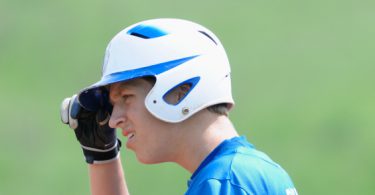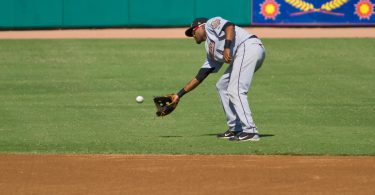This article reflects on my time at an NCAA Division I college baseball program in California. This is an outline of an average day for a college baseball player. It’s not meant to overwhelm you, rather it aims to show you the commitment and work ethic that it takes to be a college baseball player. Here is how a typical day went down.
7:00- Breakfast
For a student-athlete with a long day ahead , the first meal is going to be the most important. What you put into your body in the morning is going to have a direct correlation to your performance during the rest of your day. This is a time to get your protein and fruits and vegetables right away.
8:00-10:00- Class
This is one of the biggest changes from high school to college. In college, you are responsible to making your own class schedule. This means that there are few excuses for missing classes. Perhaps the biggest change from high school is that there is no one there to babysit you. The professors that you have, for the most part, will not make sure you are in class each day, will not make sure you turn in your homework, and will not make sure you pass the class just because you are an athlete. In college, you are responsible for your own decisions in the classroom (and the results if you don’t stay on track).
11:15- Lunch
After class, you must re-fuel your body for the long day of baseball activity you have ahead of you. Just like breakfast, what you put in your body is going to have a direct impact on your mental and physical performance during practice, weights and conditioning, and study hall that you have during the rest of the day. If you are going to make poor food choices during the day, it’s likely you are going to have a sluggish and unproductive day.
12:00-3:00- Practice
We will cover the schedule for a typical college baseball practice in part 2 of this mini-series, so be sure to check back in to read it.
3:30-4:00- Conditioning
Players either split into their position groups or come together as a unit to do some sort of conditioning. The pitchers will often break off and condition with drills that are geared for pitchers. For us, this included longer distance running and long sprints, for example 100-yard shuttles. The position players in our program conditioned with short, explosive sprints, ladder drills, and sled pulls (sprints while dragging a weighted sled).
4:00-5:00- Weights
Strength-training is an area that can help improve many aspects of baseball performance and is a key component to most college programs. Strength training plays a key role in hitting, pitching, running, endurance, and keeping your body healthy during the long 56 game D1 season. When you are an 18-year-old freshman playing against some 23 year-old guys who are much stronger and faster than you, it’s up to you to take your weight lifting program seriously to close that gap quickly and compete right away.
5:30- Dinner
Finally, you get to replenish your body after all of the hard work you’ve put into your day. In order to strengthen your muscles and refuel your body, you need to put in the fuel that your body deserves and will make you better. Eating healthy foods can make a big difference with your gains in the weight room and in making sure you are getting enough calories to replace what you are burning off. This means not always going straight for pizza and burgers for dinner in the cafeteria, but choosing a variety of healthier vegetables and protein that will refuel your body and get you ready for the same grueling schedule tomorrow.
7:00-10:00- Study Hall
Many college baseball programs have a required study hall. For my school, we had it for the underclassmen to make sure they were on top of their grades from the start. The grades that you get during your first two years of college will set a precedent for the rest of your time in college. Study hall is a time where you are forced to get your homework done or study for tests you have coming up. Your study hall is going to be full of your teammates, and you should rely on each other to collaborate and make sure all the work gets done. Funny as it sounds, study hall is a great place to build the friendships that go beyond the baseball field and last beyond college.







